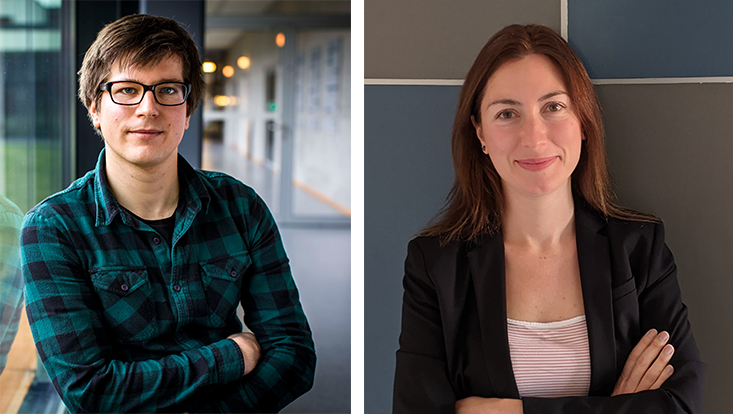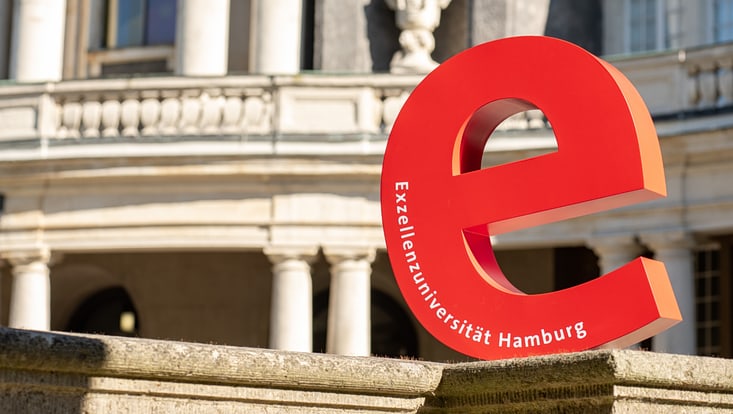Pilot project at CUIIndividualized Support for Early Career Researchers
3 May 2021, by Ingeborg Adler / Christina Krätzig

Photo: DESY/Lars Berg, privat
The Hamburg Centre for Ultrafast Imaging: Cluster of Excellence Advanced Imaging of Matter has developed a new funding concept. The goal of the Young Investigator Group Leader concept is to provide the best support possible to highly talented early career researchers on their paths towards a professorship or leadership position. One special feature is a structured program that includes a development center to provide individualized support.
Seven young investigator group leaders have already begun their work at The Hamburg Centre for Ultrafast Imaging: Cluster of Excellence Advanced Imaging. The newly created positions target young researchers who are already conducting their own ambitious independent research projects and are applying for or have already acquired funding at the level of Emmy Noether research groups or ERC Starting Grants.
The researchers receive support from one or more “hosts” and their research projects form part of the hosts’ own projects or research groups. This concept allows the early career researchers to conduct their research largely independently while benefiting from the host group’s resources.
Individual development plans with a focus on leadership skills
One special feature of the concept is a development plan to provide individual support. The main question here is what do the researchers need to pursue their next career goals? “The starting point is the voluntary development center. This should help young investigators identify the development fields that are personally important to them,” says Prof Henning Moritz, who oversees the new program jointly with the cluster’s managing director Anika Ostermaier-Grabow and career counselor Jutta Voigtmann. Arne Seeburger, who advises on HR diagnostics for Universität Hamburg, is lending a hand with the conception, preparation, implementation, and evaluation of the development center, which forms the core of the new support concept.
In these half-day workshops, prepared in meetings and discussions, the young investigators are charged with practical tasks and take part in leadership simulations. On the basis of the results, they receive a personal development plan. Depending on their needs, they then take workshops, receive coaching, or meet with others to exchange ideas and reflect upon their progress every 6 months.
“I think it’s very good that the program is so individual and that is focuses on personal development needs,” says Dr. Philipp Wessels-Staarmann, one of the 7 young investigators. Going through the development center, he continues, is such a valuable experience because you then understand how an assessment center in an academic search procedure works. Irene Fernandez-Cuesta, who is also taking part in the project, adds: “The development center was a very interesting experience. It definitely helped me to learn more about myself and to see things from a different perspective. I got useful feedback from colleagues and, above all, from experts.”
Program to be expanded
With the Young Investigator Group Leaders concept, the Cluster of Excellence Advanced Imaging of Matter is realizing the goal of supporting early career researchers, which it has firmly established in its research program and for which over 80 percent of the funding is earmarked. “If it goes well, we will offer the development program for other cluster researchers outside the Young Investigator project at the brink of their next career move so that we can support them more individually,” hopes Ostermaier-Grabow.
The first participants of the Young Investigator Group Leader program
The young investigators are Dr. Thore Posske, Dr. Philipp Wessels-Staarman, Dr. Guillaume Salomon, and Dr. Eric Hill as well as Dr. Frank Schlawin, Dr. Aaron Kelly, and Dr. Irene Fernandez-Cuesta. Find more information in the 2 linked articles introducing the young investigators.


